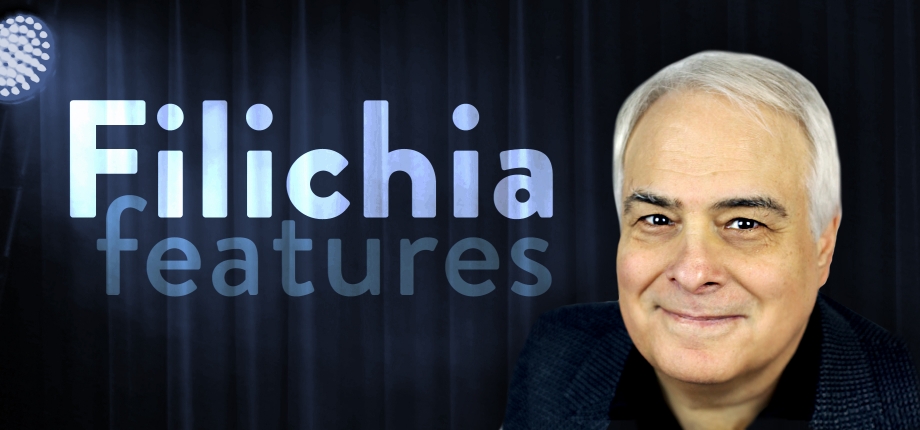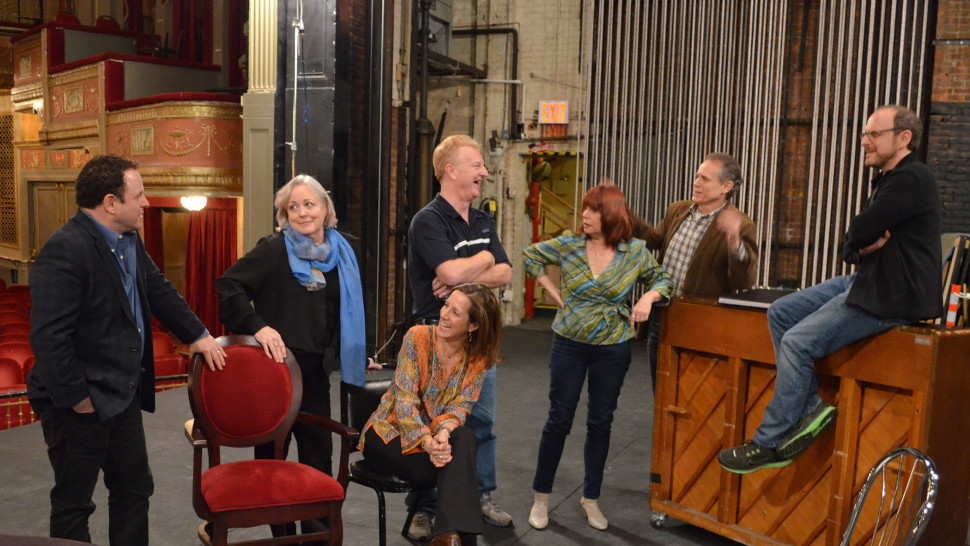Filichia Features: The Best and Worst of Times for Merrily We Roll Along

Filichia Features: The Best and Worst of Times for Merrily We Roll Along
Irving Berlin lied when he wrote “There’s No Business Like Show Business.”
Everything about it is not appealing.
Twenty-six young adults on a certain day in 1981 wouldn’t have believed it. That’s when Harold Prince told them “You’re all in the show” – meaning his upcoming George Furth-Stephen Sondheim musical Merrily We Roll Along.
Sometime between Oct. 8, 1981 (the first preview) through Nov. 16 (the opening) and Nov. 28 (the closing) they learned that Berlin had fibbed. Merrily received mostly negative reviews and mustered only 16 performances.
The making – and breaking – of Merrily is the subject of Lonny Price’s superb documentary Best Worst Thing That Ever Could Have Happened. It’s an absolute must-see for those planning on theater careers, for it teaches many hard truths that are best-learned early.
Lonny Price was with Merrily from the first experimental reading, playing Charley Kringas, the soon-to-be-collaborator of composer Franklin Shepard and best friend to budding writer Mary Flynn. During the last few years, Price reconnected with many of his 25 young castmates and interviewed them for this extraordinary 95-minute film.
Price made room for Sondheim and Prince, too. (Furth died in 2008.) Sondheim is seen after that first let’s-see-if-we-have-anything reading joyously stating that “By the fourth scene, you forget they’re kids” – which was important because Merrily started in 1955 with high school graduates and followed them through 1980. Thus the cast needed young people who’d be required to convincingly age.
Some say that they never achieved that goal. But that criticism came later. First we see their many auditions. When casting director Joanna Merlin told Maryrose Wood “You’re on the short list,” she had a reaction so naïve that it’s one of the funniest moments of the many in the film. The reason that Terry Finn (Gussie) wanted in? She might just meet a certain two-time Tony-winner and get to sleep with him.
Well, they were all 16 to 25 then, with faces as innocent as cherubs in Renaissance paintings. Abby Pogrebin was the youngest, but years earlier she’d been offered a role in a smash hit musical. You’d never guess the reason she didn’t take it if you live to be twice as long as George Abbott did.
The auditioners dubbed associate producer Ruth Mitchell “The Angel of Death” for she had the task of telling hundreds of kids that they weren’t cast. Hal Prince gets the much nicer job of telling the golden 26 just the opposite. What unmitigated and unparalleled joy erupts!
A videotape from that time shows Price kvelling “I walk around smiling all day” but a recent one has David Cady (Jerome) sadly state “I expected the next Stephen Sondheim show would be the best-ever.” Hal Prince too admits that throughout rehearsals and up to Merrily’s first preview, he believed that he had a hit.
What he, Sondheim and Furth actually had was a show from which many walked out. Mandy Patinkin certainly wasn’t one of them; he states that he saw the production more than a dozen times and mourned that he was too old to be in it.
The changes and chaos continued through 44 previews. Ann Morrison, playing Mary, couldn’t believe that Prince, already the possessor of 18 Tonys, was asking little-ol’-her for advice about the costumes.
Despite the audience defections and bad word of mouth, the show steadily improved, especially after Jim Walton replaced James Weissenbach as Franklin. So after the opening night final curtain fell, all the cast members celebrated in a circle; to their surprise, Sondheim leaped into it and joined them in joy.

Original cast members of Stephen Sondheim's Merrily We Roll Along (Photo by Bruce David Klein).
The happiness was short-lived. The film shows some negative TV reviews and a snippet from Frank Rich’s New York Times pan. Oh, there was Clive Barnes’ rave in the New York Post, but what’s telling is its bold pull-quote that acknowledged Merrily’s already-bleak reputation: “Forget what you’ve heard and go see for yourself.”
Not enough people did. Pogrebin defiantly knew that someday the rest of the world would catch up to the wonders of Merrily. She was right. As end credits reveal, thousands of productions have since been mounted. This film will undoubtedly inspire more.
Most astonishing is that Weissenbach agreed to participate in the film. Does time heal all wounds? See the tears that peek from Morrison’s eyes these 35 years later as she recalls losing her self-esteem. She got it back, though, and you’ll see what good she currently does on a daily basis. We also catch up with the others, now squarely in middle age, and discover, to paraphrase another Sondheim song, the roads they did take.
One young ‘un did go on to household-name fame: Jason Alexander, thanks to a show about nothing in which he played a schlub. That’s ironic, for Merrily had cast him as Frank and Charley’s brash and successful Broadway producer.
Alexander tells about one pressure of stardom: “You walk out the door and say ‘You’re on.’” Lest we doubt him, he’s seen being crowded by fans even in matter-of-fact settings. The 1981 footage shows he made at least one solid prediction: “If this doesn’t go,” he says of Merrily, “there’ll be a better one.”
The most potent moment may well be Sondheim’s frankly stating that his previous success with Prince – especially after they’d tackled seemingly impossible ideas for musicals and had made them fly – caused many to hope they’d fail with Merrily. Yeah, everything about show business is not appealing -- but everything about Best Worst Thing That Could Have Happened certainly is.
You may e-mail Peter at pfilichia@aol.com. Check out his weekly column each Monday at www.broadwayselect.com and Tuesday at www.masterworksbroadway.com. His book, The Great Parade: Broadway’s Astonishing, Never-To-Be Forgotten 1963-1964 Season is now available at www.amazon.com.

























